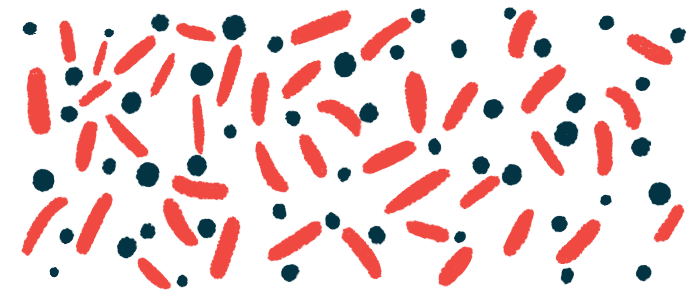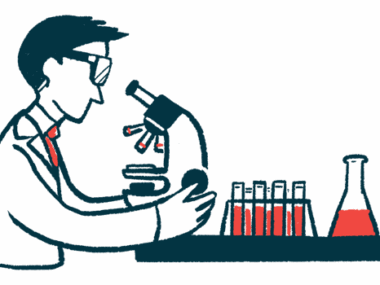Beta-sitosterol May Help With P. aeruginosa Infection in CF
Natural plant compound shows early potential to ease inflammation
Written by |

A compound called beta-sitosterol, abundant in plants, eased the burden of Pseudomonas aeruginosa infection — a common bacteria infecting the lungs of people with cystic fibrosis (CF) — and lessened chronic inflammation in a mouse model.
Findings suggest that beta-sitosterol, or BSS, “has the potential to undergo pharmaceutical development to be applied in chronic lung inflammatory diseases sustained by P. aeruginosa infection,” the researchers wrote.
“β-sitosterol ameliorates inflammation and Pseudomonas aeruginosa lung infection in a mouse model” was published as a short communication in the Journal of Cystic Fibrosis.
Cystic fibrosis is caused by mutations that impair the working of the CFTR protein, which helps regulate the flow of water and salts into and out of cells.
Despite the availability of CFTR modulators, therapies that can boost the performance of CFTR in people with specific disease-causing mutations, including the common F508del mutation. But their effects on lung inflammation in patients with advanced lung disease “is presently under scrutiny and novel anti-inflammatory strategies continue to be proposed,” the researchers wrote.
Beta-sitosterol known as anti-inflammatory agent
BSS is an abundant plant sterol, a natural compound in plant cell membranes that is structurally similar to cholesterol. In Northern Africa, beta-sitosterol extracted from seeds of the wild fennel flower, or Nigella arvensis L., is broadly used as anti-inflammatory medication in traditional medicine, the report noted. It is also among the active ingredients of a traditional Chinese herbal medicine used for respiratory diseases.
“BSS is one of the most abundant sterols deriving from plants, widely tested for efficacy and safety in clinical pharmacology with many potential applications as anti-microbial, anti-inflammatory, or immunomodulatory agent,” the scientists wrote.
In a previous study by these researchers in Italy, BSS was found to inhibit the expression of a pro-inflammatory cytokine — called interleukin (IL)-8 — in CF bronchial epithelial cells exposed to P. aeruginosa.
The team now aimed to determine whether BSS could help to lessen inflammation in CF.
Researchers first used a mouse model of acute lung infection with P. aeruginosa. Mice were treated with one of two single doses of BSS — 5 or 25 milligrams per kilogram of body weight (mg/kg), both reflecting potential human doses — given directly into the stomach before infection.
BSS significantly improved the overall health status of the mice and led to a marked decrease in airway bacterial burden compared with mice given an innocuous solution, serving as controls.
Mice treated with BSS also showed a tendency toward a lower number of certain white blood cells, key players of the immune system that also drive inflammation. Specifically, lower counts of macrophages and neutrophils were evident in their bronchoalveolar lavage fluid (BALF), the liquid obtained from rinsing the lungs with a saline solution.
However, this decrease after a single treatment did not reach statistical significance when compared with control mice, “indicating that repeated administrations may be required to demonstrate therapeutic efficacy,” the researchers wrote.
BSS at repeat doses was next tested in a mouse model of chronic P. aeruginosa lung infection, which recapitulates the more advanced lung disease of CF patients. Mice received BSS at 5 or 25 mg/kg given or a saline solution directly into the stomach, a process known as oral gavage, 24 hours before infection. The treatment was given daily for six days.
Soon after infection, both treated and control mice lost body weight, but those given BSS regained weight significantly faster, suggesting improved health, the team noted.
At six days post-infection, white blood cell counts were lower in the group treated daily with BSS at 25 mg/kg, with a significant drop in neutrophils when compared with control mice. This was accompanied by a statistically significant reduction in the total bacterial load in the airways, but only in animals treated with BSS at 5 mg/kg.
Furthermore, BSS lessened the inflammatory reaction triggered by the bacterial infection that often causes chronic damage to the lungs. This was shown by a reduction in key inflammatory signaling molecules, called chemokines, mainly involved in the recruitment of neutrophils, including IL-6, IL-12, and the granulocyte colony-stimulating factor (G-CSF).
While recognizing that the mechanisms behind BSS are not completely understood, its “anti-inflammatory activity is accompanied by a beneficial protecting activity against infection and improvement of health status,” the researchers wrote.
“BSS has the potential … to be applied in chronic lung inflammatory diseases sustained by P.aeruginosa infection with huge amount of neutrophil infiltrates,” the team concluded. “Specific pre-clinical and clinical validation in CF lung models is required,” however, to determine if beta-sitosterol could be an effective add-on therapy to CFTR modulators.







